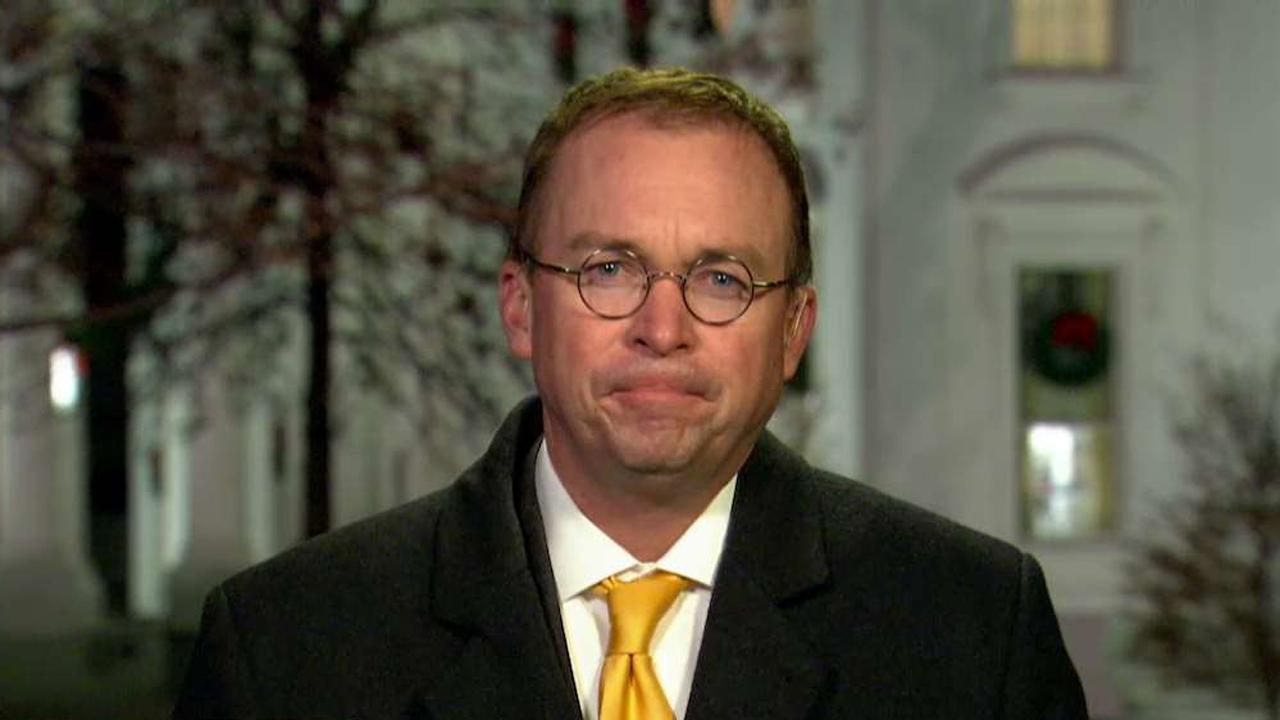CFPB acting director Mick Mulvaney says the agency lacks accountability to taxpayers
Mick Mulvaney, the acting director of the Consumer Financial Protection Bureau (CFPB), told FOX Business’ Lou Dobbs the agency’s structure is “fundamentally flawed†and his authority should frighten people.
“There’s no accountability to Congress. I can set the budget pretty much without any input from Congress. In fact, without any input from Congress, we get an allotment from the Federal Reserve,†Mulvaney said. “The real bottom line is it’s simply unaccountable.â€
The CFPB was created in 2011 by the Obama administration as part of the Dodd-Frank reform that followed the financial crisis. It oversees financial intuitions, monitors markets and protects consumers from fraud.
Mulvaney said the agency’s powers should be limited to prevent interference with capitalism and financial markets.
“There is no accountability to the American taxpayers here and that’s wrong. I am hopeful that it will change,†he said.
President Donald Trump named Mulvaney the head of the agency following the resignation of Director Richard Cordray and shortly after Cordray appointed his own successor, Leandra English.
Mulvaney said supporters of the CFPB such as Massachusetts Sen. Elizabeth Warren (D) should have expected Trump to appoint a successor to lead the agency.
“The President of the United States, this is an executive agency, has the right to have influence over here, has the right to see their agenda put forward, and that’s exactly what we are going to do at the CFPB,†he said.
The White House Budget Director discussed the Trump administration’s tax reform objectives, including providing middle-income families tax relief and lowering the corporate tax rate.
“Middle class folks, ordinary Americans, will pay less and they’ll have a simpler tax system, a fair tax system and that corporate tax will be dramatically lowered,†Mulvaney said.
Trump has yielded slightly at the bargaining table over the House corporate tax rate proposal of 20% from the original bigger cut of 15%.
“We had agreed to accept 20% that’s what’s in the House bill. If the Senate does happen to pass it at something else, 21% or 22%, if they pass something different then obviously those two factors have to be reconciled between the House and the Senate before the final passage of the bill,†he said.
The House and Senate tax bills both plan to lower individual income tax rates for the middle class and reduce the corporate income tax from its current rate of 35%.




















